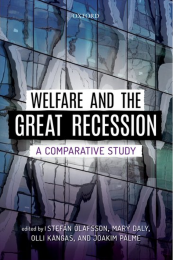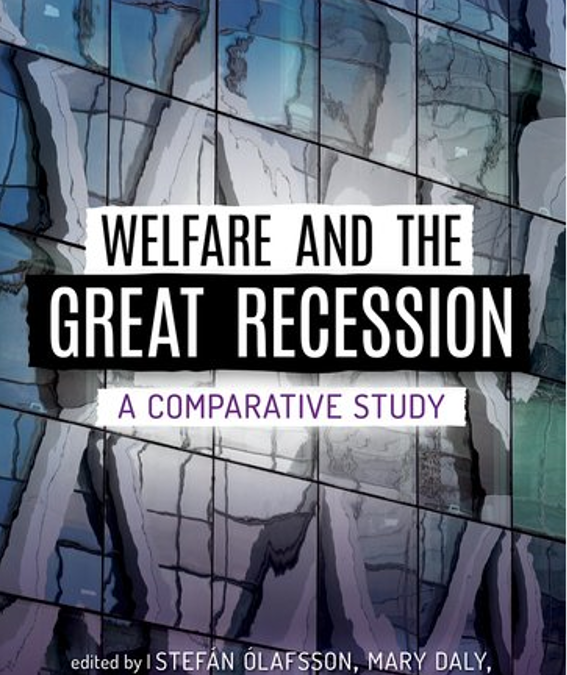 Welfare and the Great Recession: A Comparative Study has been published by Oxford University Press. The book is edited by EDDA researcher Stefán Ólafsson along with Mary Daly, Olli Kangas, and Joakim Palme.
Welfare and the Great Recession: A Comparative Study has been published by Oxford University Press. The book is edited by EDDA researcher Stefán Ólafsson along with Mary Daly, Olli Kangas, and Joakim Palme.
The edited volume focuses on the consequences of the European financial crisis on welfare and how the burdens of the recession differ between countries, socio-economic groups, and within countries. Furthermore, the book offers new evidence demonstrating that when it comes to sheltering populations from serious economic contraction, the importance of the welfare state and government policies is significant.
Welfare and the Great Recession is divided into two parts: first, Comparative Profiles, Theories, and Policies, and second, Country Case Studies of Greece, Spain, Ireland, Iceland, Finland, UK, Denmark, Norway, and Sweden. It uses comparisons of thirty countries with an in-depth study of the nine countries to offer various lessons from the experience of the financial crisis in Europe. It reflects on welfare futures in a globalized crisis-prone environment.
With a focus on household level welfare consequences, this edited volume relates financial hardship to institutional characteristics such as welfare regimes, currency regimes, socio-political patterns, affluence levels, public debt, and policy reactions to periods of crisis. The study takes into account stimulus versus austerity, the degree of social protection emphasis, the commitment to redistribution, and the significance of activism.
Keywords: welfare, recession, comparison, financial crisis, household level

